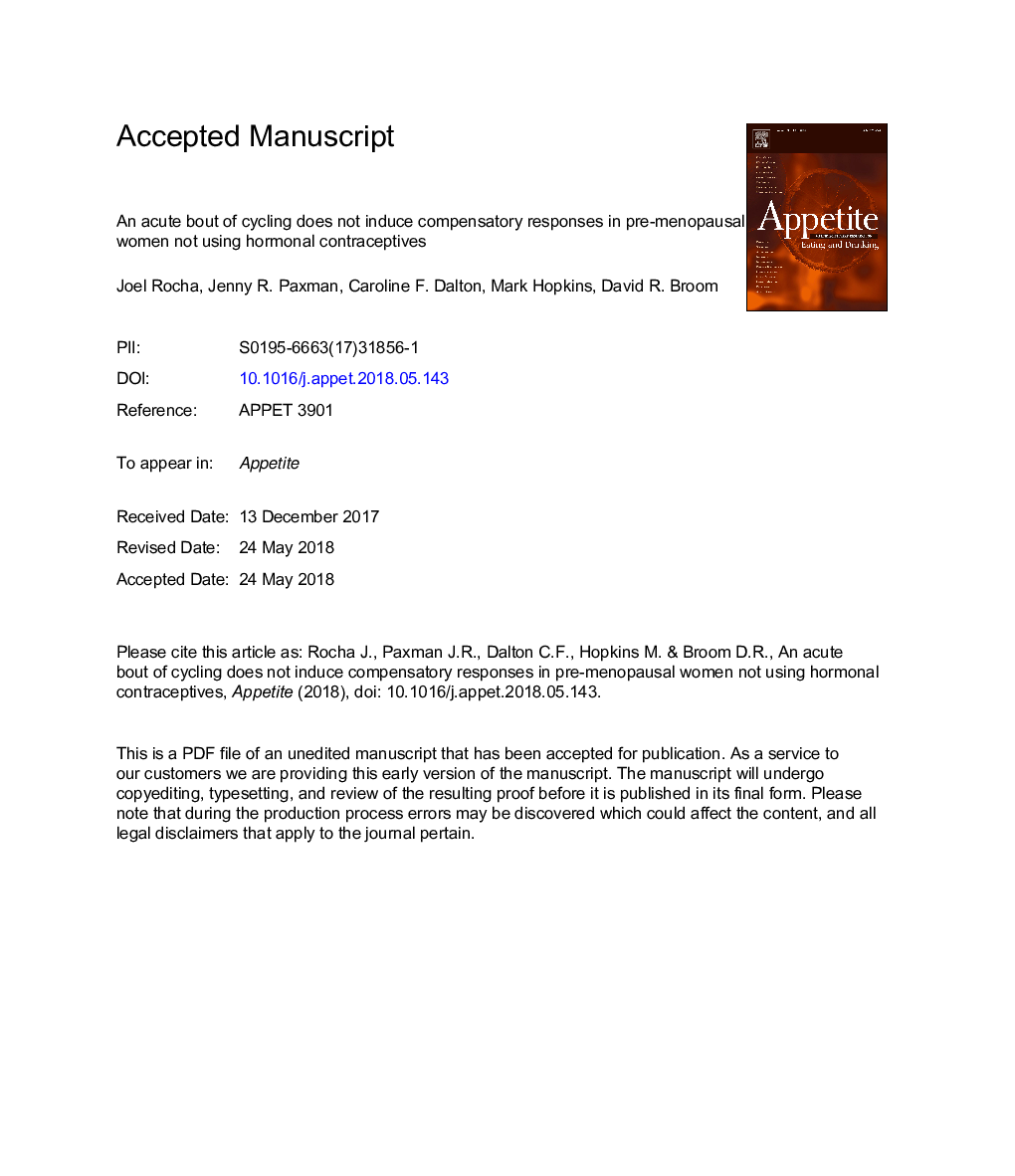| Article ID | Journal | Published Year | Pages | File Type |
|---|---|---|---|---|
| 7305297 | Appetite | 2018 | 31 Pages |
Abstract
There is a clear need to improve understanding of the effects of physical activity and exercise on appetite control. Therefore, the acute and short-term effects (three days) of a single bout of cycling on energy intake and energy expenditure were examined in women not using hormonal contraceptives. Sixteen active (nâ¯=â¯8) and inactive (nâ¯=â¯8) healthy pre-menopausal women completed a randomised crossover design study with two conditions (exercise and control). The exercise day involved cycling for 1â¯h (50% of maximum oxygen uptake) and resting for 2â¯h, whilst the control day comprised 3â¯h of rest. On each experimental day participants arrived at the laboratory fasted, consumed a standardised breakfast and an ad libitum pasta lunch. Food diaries and combined heart rate-accelerometer monitors were used to assess free-living food intake and energy expenditure, respectively, over the subsequent three days. There were no main effects or condition (exercise vs control) by group (active vs inactive) interaction for absolute energy intake (Pâ¯>â¯0.05) at the ad libitum laboratory lunch meal, but there was a condition effect for relative energy intake (Pâ¯=â¯0.004, ηp2â¯=â¯0.46) that was lower in the exercise condition (1417â¯Â±â¯926â¯kJ vs. 2120â¯Â±â¯923â¯kJ). Furthermore, post-breakfast satiety was higher in the active than in the inactive group (Pâ¯=â¯0.005, ηp2â¯=â¯0.44). There were no main effects or interactions (Pâ¯>â¯0.05) for mean daily energy intake, but both active and inactive groups consumed less energy from protein (14â¯Â±â¯3% vs. 16â¯Â±â¯4%, Pâ¯=â¯0.016, ηp2â¯=â¯0.37) and more from carbohydrate (53â¯Â±â¯5% vs. 49â¯Â±â¯7%, Pâ¯=â¯0.031, ηp2â¯=â¯0.31) following the exercise condition. This study suggests that an acute bout of cycling does not induce compensatory responses in active and inactive women not using hormonal contraceptives, while the stronger satiety response to the standardised breakfast meal in active individuals adds to the growing literature that physical activity helps improve the sensitivity of short-term appetite control.
Related Topics
Life Sciences
Agricultural and Biological Sciences
Food Science
Authors
Joel Rocha, Jenny R. Paxman, Caroline F. Dalton, Mark Hopkins, David R. Broom,
